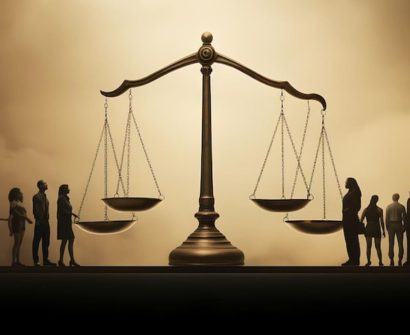
Introduction
With an estimated population of more than a billion, a sizable portion of the population resides in India with impairments. About a million individuals have been projected to live with impairments. This group of individuals has an extensive range of intellectual, mental, sensory, and physical health issues. A truly welcoming community needs to safeguard their rights and integrate them into the political, social, and economic fabric of the country.
Despite obstacles in the execution and societal attitudes, India’s legal and policy framework, especially the Rights of Persons with Disabilities Act, 2016, reflects a commitment to this goal.
disability rights
As per the meaning of disability, it is commonly characterized as an impairment that interferes with a person’s normal growth and development, such as a malfunction, disturbance, or loss in the normal functioning of physical, mental, or psychic processes, or a problem learning or adjusting to social situations.
Disability means:
- blindness;
- low vision;
- leprosy-cured;
- hearing impairment
- locomotor disability;
- mental retardation;
- mental illness
rights of persons with disabilities act 2016
- Both chambers of Parliament enacted the Rights of Persons with Disabilities Act, 2016 (rpwd act 2016). On December 28, 2016, a notification was delivered with the consent of the president.
- Three guiding principles must be followed in order to empower people with disabilities (PWD): independence, respect for one’s intrinsic dignity, and individual autonomy, which includes the right to make one’s own decisions.
- The rpwd act emphasizes respect for differences and acceptance of disabilities as a part of human diversity and humanity, equality of opportunity, accessibility, equality among men and women, non-discrimination, full and effective participation and inclusion in society, respect for the developing capacities of children with disabilities, and respect for the right of children with disabilities to maintain their identities.
rights of disabled persons: Objectives of the Act
- Ensuring that disabled individuals can live a dignified and respected life and enjoy their right to equality is the main goal of the Act.
- The Act’s Preamble states that its goal is to shield disabled persons from all forms of prejudice. The Act aims to guarantee disabled people’s full participation in society, politics, and the economy.
- This Act gives disabled individuals work protections and encourages inclusive education. It therefore seeks to empower individuals with disabilities via inclusive development and engaged social engagement.
rights for people with disabilities: Penalties Associated with the Act
- Penalties for offenses against people with disabilities and for breaking the new law’s provisions are stipulated in the Act.
- Any anyone who disobeys the Act’s provisions or any rules or regulations enacted under it faces up to six months in jail, a fine of Rs. 10,000, or both. Any such infraction may result in up to two years in prison and/or a fine ranging from Rs 50,000 to Rs five lakh.
- Anyone who knowingly threatens or intimidates a person with a disability or takes advantage of a woman or child who has a disability sexually faces a fine and imprisonment for a maximum of five years or six months.
- Each district will establish a special court to hear cases involving PwDs’ rights violations.
right of persons with disabilities act: Social Security and Health
- The government is required by Section 24 of the RPWD Act to develop welfare plans and initiatives that will give people with disabilities access to social security. It guarantees their quality of life and well-being by providing provisions for assistive devices, healthcare, and rehabilitation.
- In this regard, Section 25 of the Act specifies that local authorities and the relevant government must take the required actions to give people with disabilities free healthcare and barrier-free access to all areas of both government and private institutions. Additionally, it is necessary to arrange rehabilitation programs for all individuals with disabilities.
- According to Section 27, the relevant government and local authorities must, to the extent of their financial means and ability, provide or arrange for the provision of rehabilitation services and initiatives, with a focus on the employment, education, and health of all individuals with disabilities.
Conclusion
Undoubtedly, the right of persons with disability Act, 2016 is a progressive piece of law. It represents a paradigm change from a statute based on charities to one based on rights. The mistreatment of the disabled person often eats away at their heart, leaving them severely damaged psychologically. Ensuring social and economic justice is the goal of the Indian Constitution. People with disabilities are guaranteed social justice through the Act’s fundamental rights, and they are also guaranteed economic justice through particular provisions pertaining to employment and education.
Even though the government and the courts have taken a right-based stance toward individuals with disabilities, the Act’s implementation will need ongoing oversight. Several statutory rights have been denied to disabled individuals even after the Act went into effect, so the judiciary must be proactive in making sure that the Act’s provisions are carried out in text and spirit.










